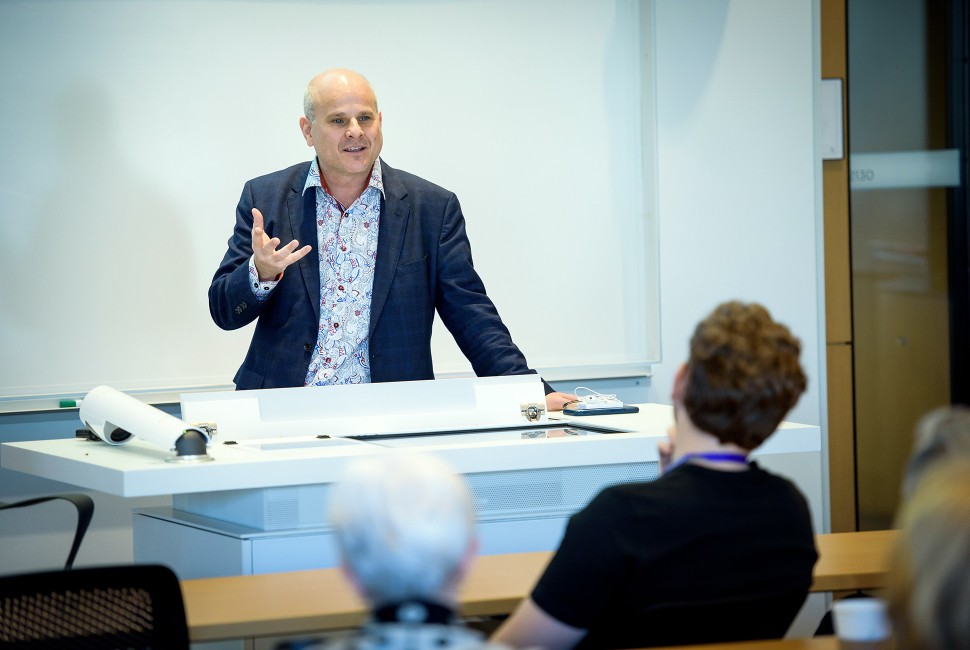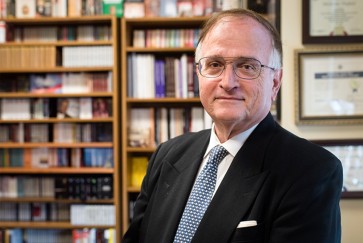Dean Karlan, the Frederic Esser Nemmers Distinguished Professor of Economics and Finance at Northwestern’s Kellogg School of Management, was officially sworn in Nov. 15 as the new chief economist for the U.S. Agency for International Development (USAID).
USAID is an independent federal government agency that administers foreign aid and development assistance around the world. In his new role, Karlan will serve as the agency’s principal economist and top expert on economic policy and analysis. Karlan will retain an affiliation and appointment at Kellogg, including his work through the Global Poverty Research Lab, during his time at USAID.
Karlan is the founder and former president of Innovations for Poverty Action, a nonprofit dedicated to discovering and promoting solutions to global poverty. His research focuses on microeconomic issues of poverty, typically employing experimental methodologies and behavioral economics insights to figure out what solutions work best and why they work in order to address social problems.
While serving as USAID’s chief economist, Karlan will be empowered to elevate the use of evidence across the agency’s operations and programs, integrate behavioral science and experimental design into its work and help position USAID to address economic developments that affect its global programming. He will offer guidance on how USAID can respond to issues like changing market conditions, economic shocks and challenges like severe debt distress.
Karlan will also provide assistance, resources and tools to help USAID staff in diverse fields incorporate iterative testing, experimental design and behavioral insights into programming and decision-making, according to the agency, to help ensure that its resources “have their greatest and most sustainable impact.”


